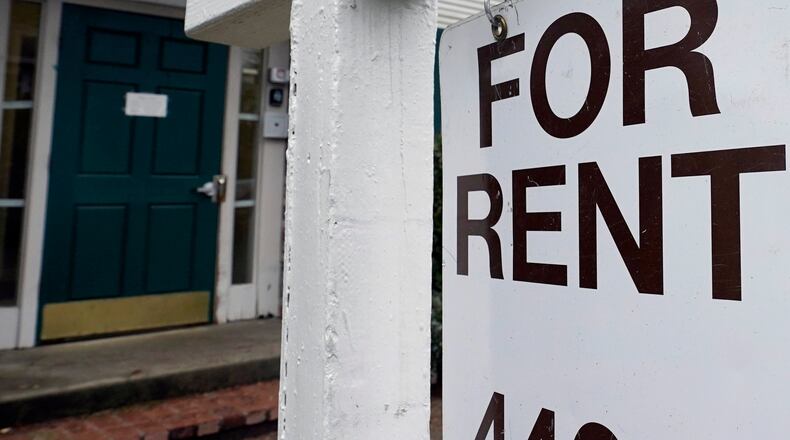As part of the $900 billion federal omnibus bill passed in late 2020, lawmakers set aside $25 billion to help renters who struggled to meet their housing and utility bill obligations. Butler County qualified for $11.4 million of the money. The federal government announced a second wave of funding and the county was awarded an additional $9 million.
The commissioners did not accept the second round of funding initially because they wanted to gauge the need first. They tapped it in January.
The commissioners enlisted the aid of Supports to Encourage Low-income Families to manage the program. Executive Director Jeffrey Diver told the Journal-News they helped 278 households in May which is more than any other month this year.
“It’s still meeting a critical community need, we’ve got a perfect storm going on right now for low income families, in that many landlords are increasing rents,” Diver said, citing an article on NPR that shows Cincinnati has the third highest median rent in the country at $1,713.
“We know locally that rents are going up and in some cases rents have even doubled in households going month-to-month. So you have a perfect storm of increasing, fuel prices, increasing rents and increasing food prices, those are all putting a squeeze on the lowest income households.”
There are restrictions on the money, recipients must be able to demonstrate their inability to pay their rent is due to COVID-19. Eligible renters must make below 80% of the area median income, which equates to earnings of around $45,000 for a family of two.
When the commissioners approved the first allocation of money they wanted assurance landlords wouldn’t evict the people — the federal government placed an 11-month moratorium on evictions during the height of the crisis — after they got their money or raise rent; they wanted to utilize wrap-around programs the county has to help people get back on their feet, and they wanted to make sure people understood this is short-term assistance.
Diver said the landlords have abided by the rent-raising condition while people are receiving the assistance but “they are increasing it when assistance is not available.”
Brandon Beard was about to be evicted from his rental home in Fairfield because his temporary construction job ended and his $10 an hour Kohls salary didn’t cover expenses for his family of four. His landlord told him about SELF — and took him off the eviction list — so he called and received assistance from March through the end of this month.
“It was really fast, it happened in like in seven days...,” he said. “It was a big sigh of relief.”
His rent is going up $200 when his lease ends next month, but he said with his new job on the Honeywell assembly line and daycare assistance from Butler County Job and Family Services they’ll be “fine for right now.”
Eric Vincent, past president of the Butler County Real Estate Investors Association, agreed rents “are going up stupid and I struggle to justify it.” But landlords are being squeezed by the inflation crisis just like everyone else is.
“It is tough we’re all working like crazy and trying to pay the bills, I think that’s sort of universal for everybody, whether you rent or own your own home...,” Vincent said. “We’re all trying to make a living and prices are going up, holy cow. The part that worries me is are we sustainable, especially if we hit a recession, are we sustainable in supporting them all the time, rather than their jobs sustaining them.”
Nevertheless he said his own personal philosophy is not to take a knee jerk approach.
“I don’t want to be highest rent, I want to be a comfortable rent...,” Vincent said. “My goal is I’m not looking to make a killing for a year, my goal is to have somebody come in and park and stay there for years.”
SELF received other COVID-19 funds that allowed them to help renters and homeowners alike. He said they have spent nearly $3 million helping 1,528 households with those dollars.
The deadline for spending the remaining $8 million is not until September 2025 but the U.S. Treasury will start “clawing” back and redistributing unspent funds at the end of this year, according to the county’s Community Development Administrator Susan Ellerhorst.
Diver said he doesn’t believe they will be returning any money.
“We don’t anticipate the money is going to last through 2025 anyway, because if we’re expending at the rate of about $1 million a month, you can do the math and figure out that this could be gone by the end of the year or at least early next year,” Diver said.
About the Author

